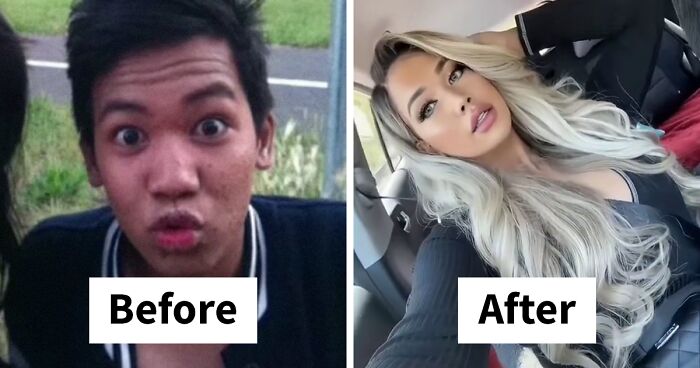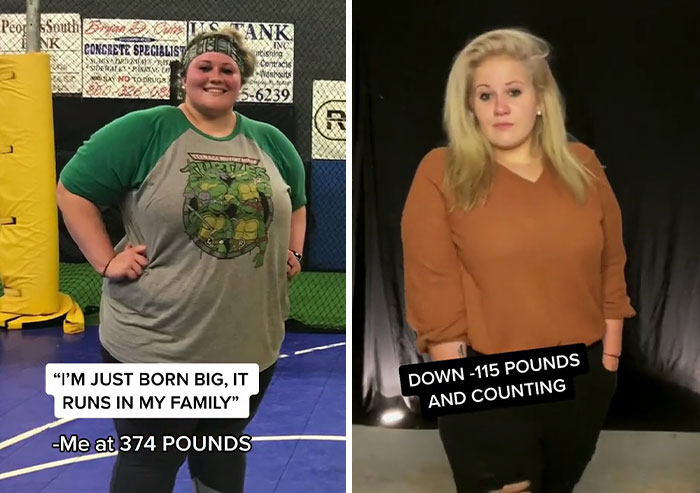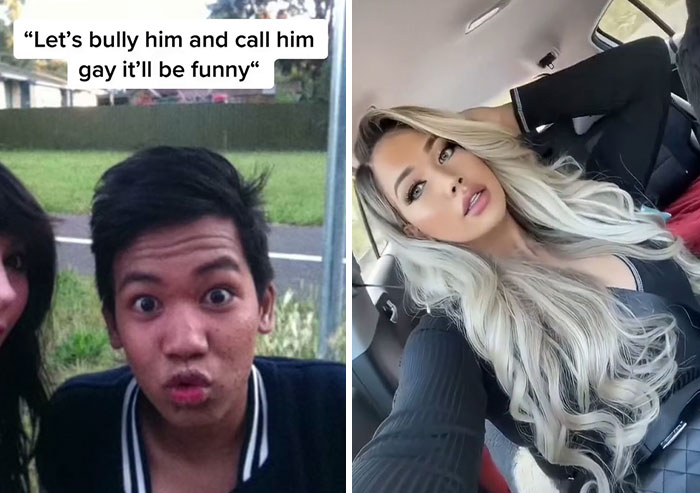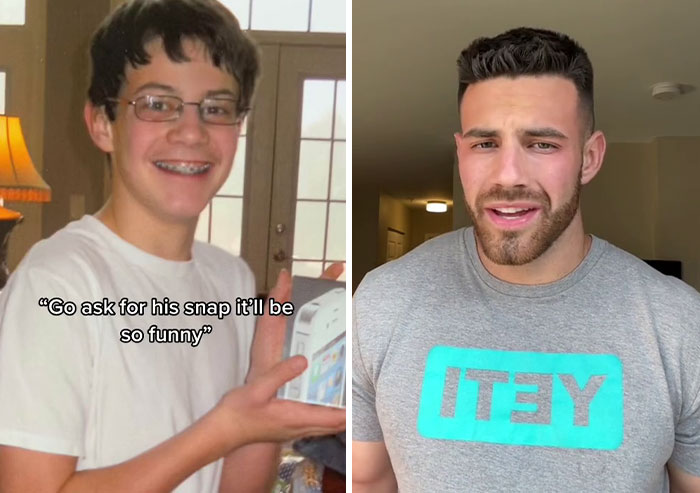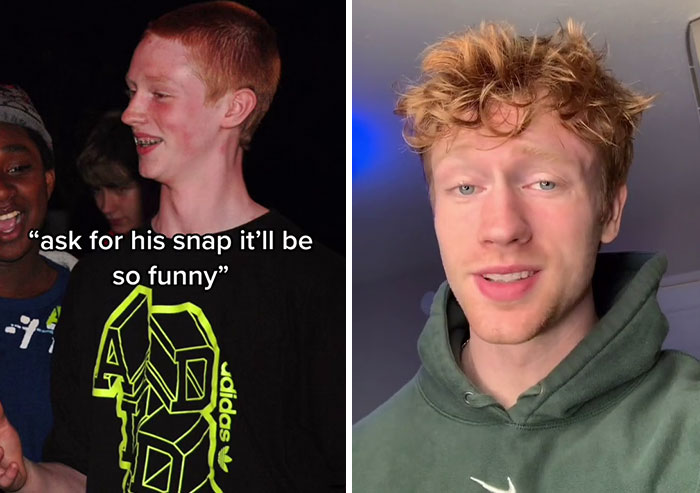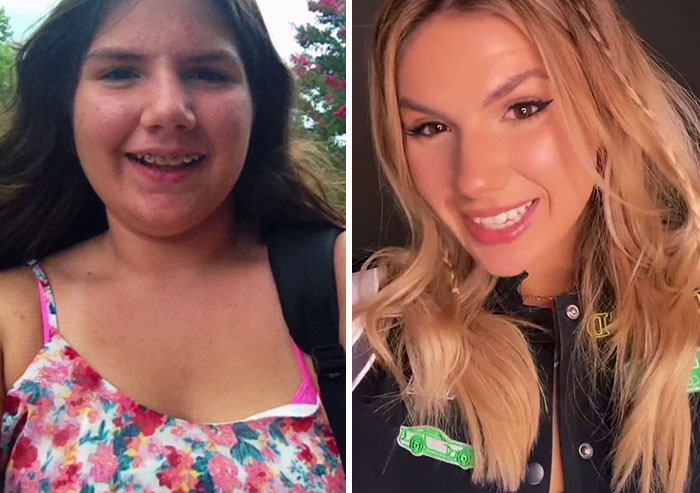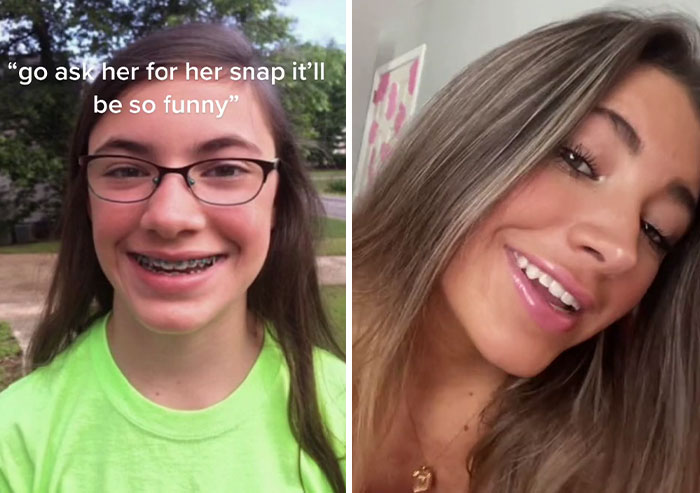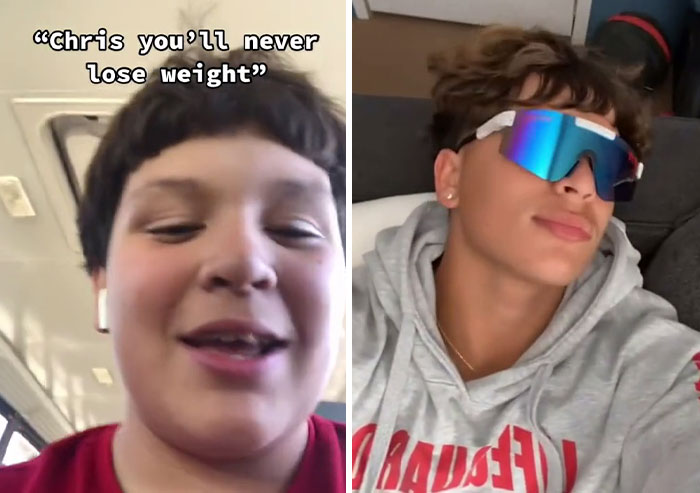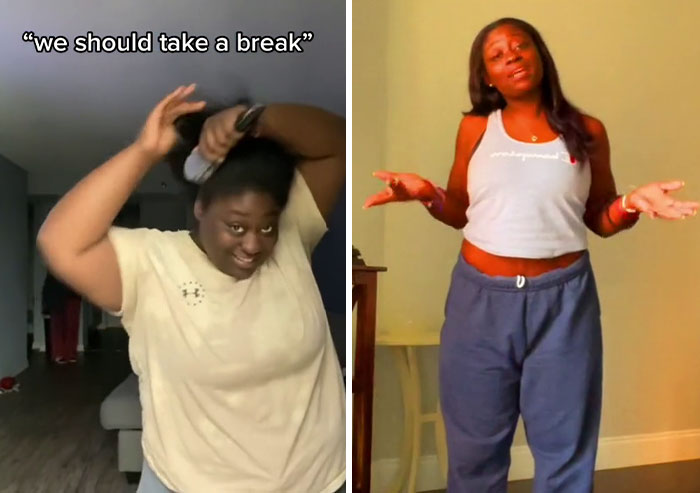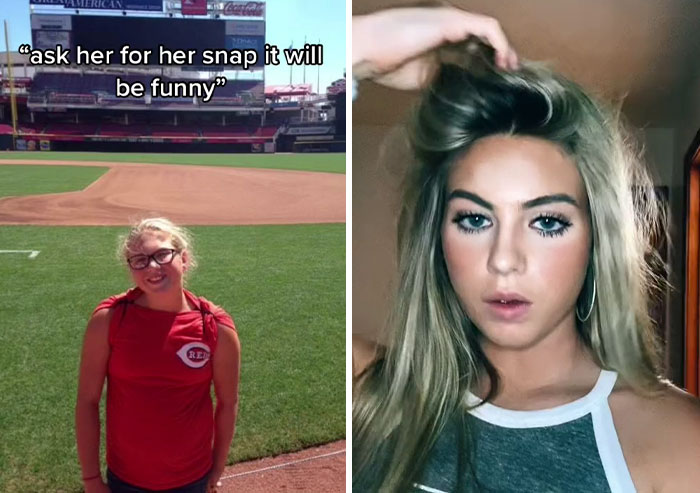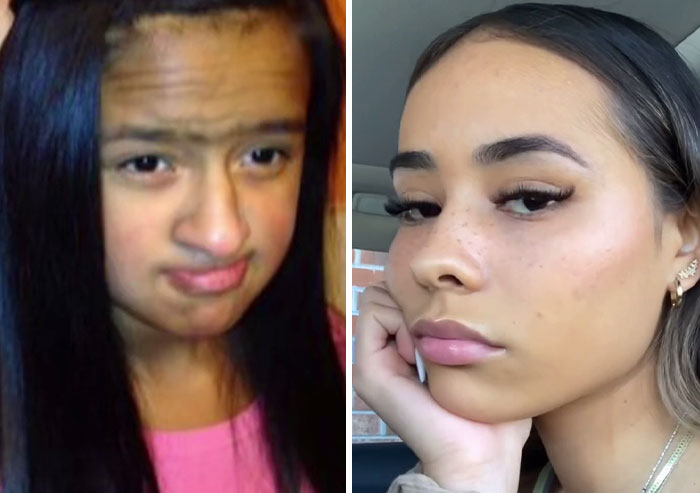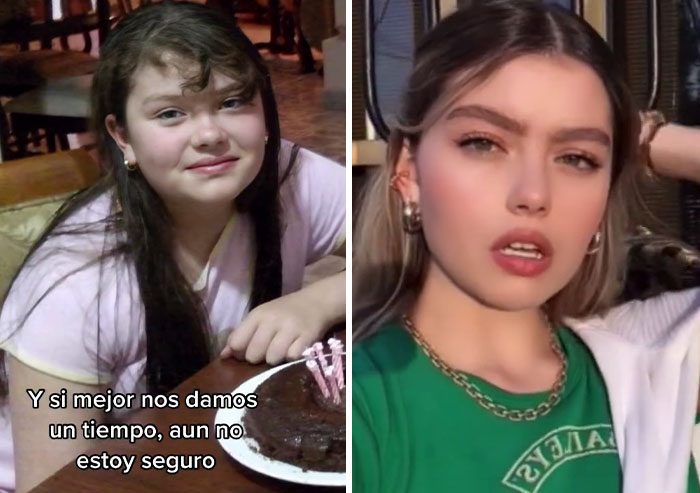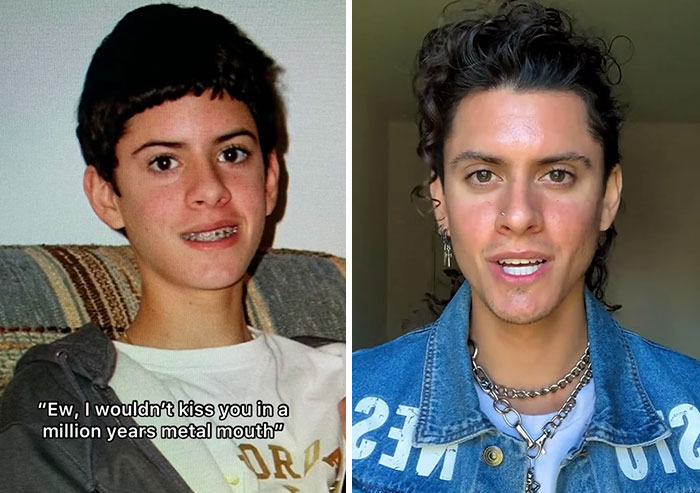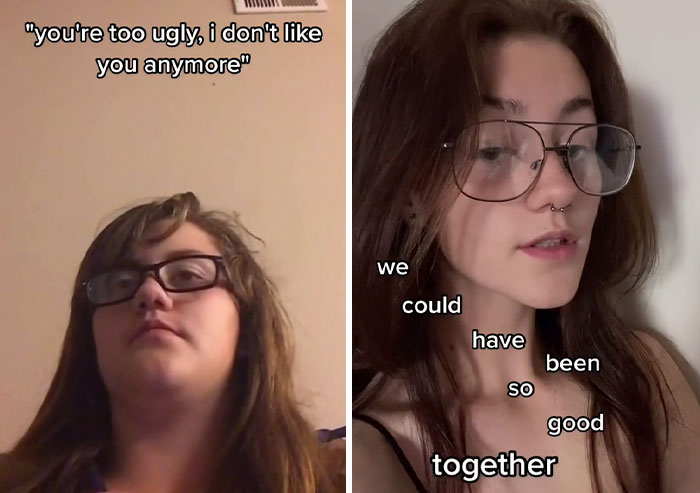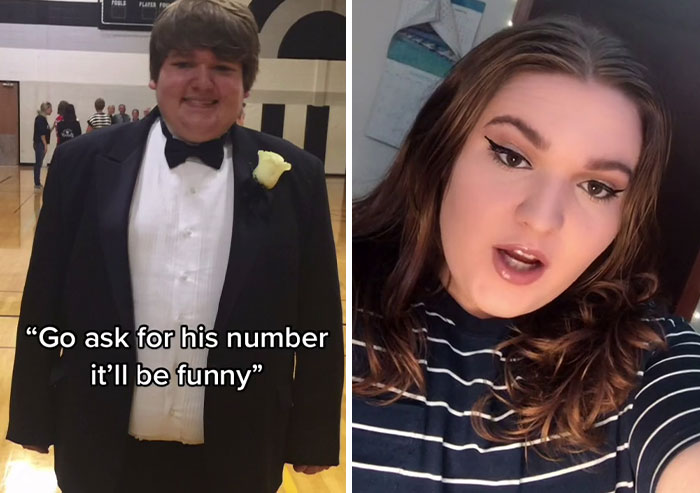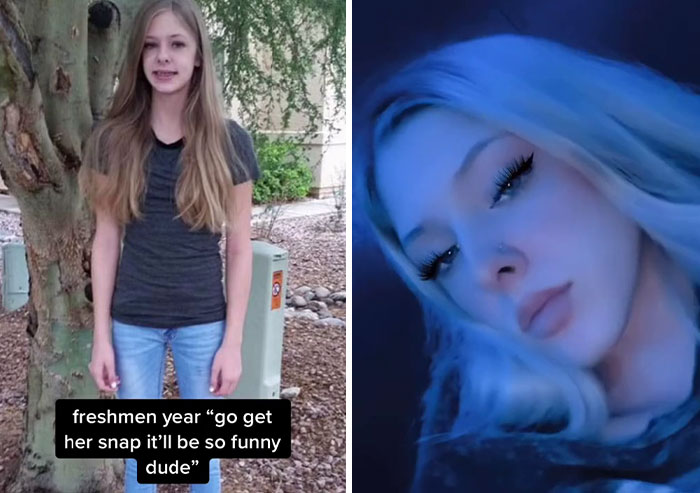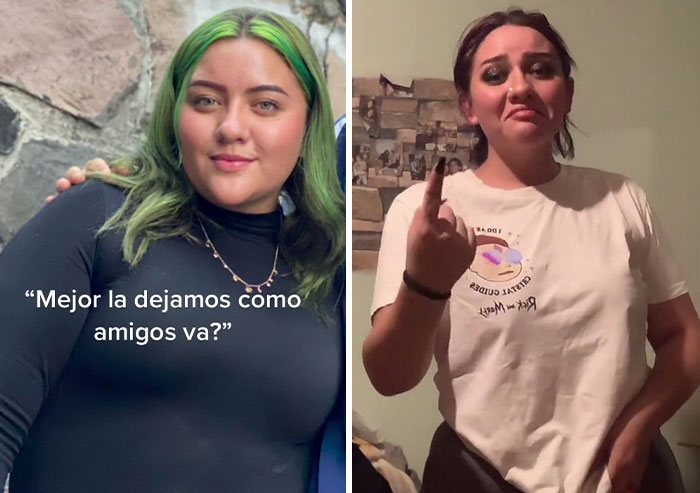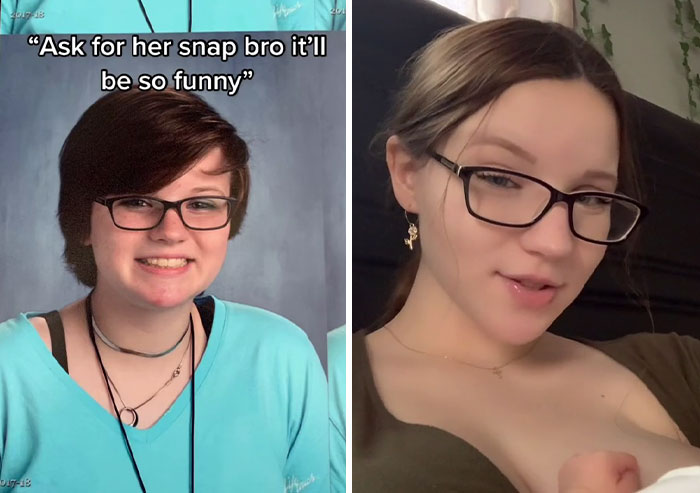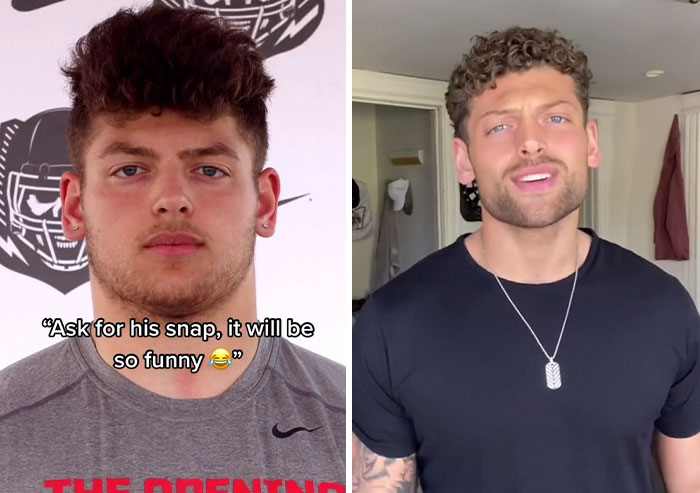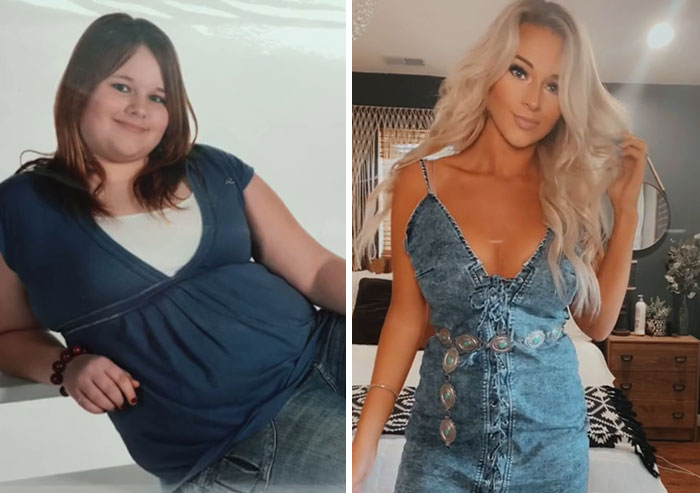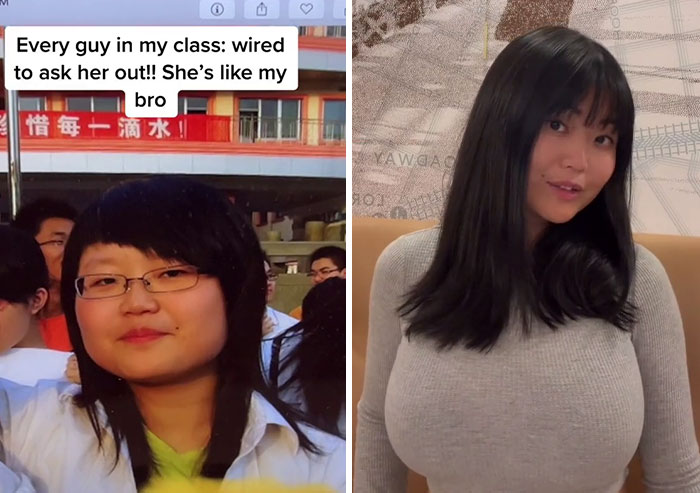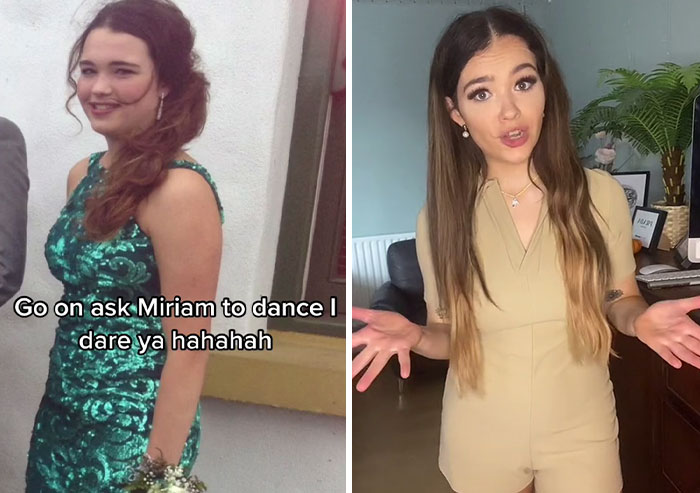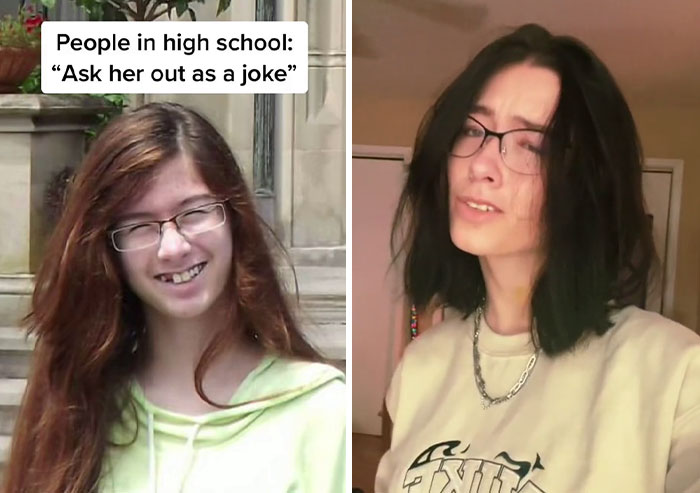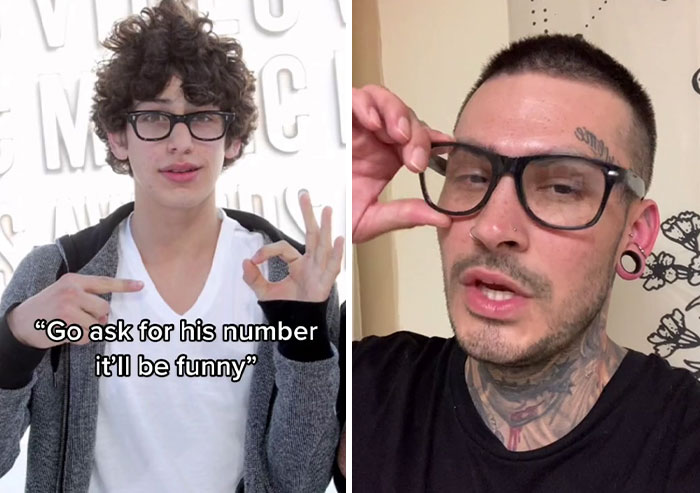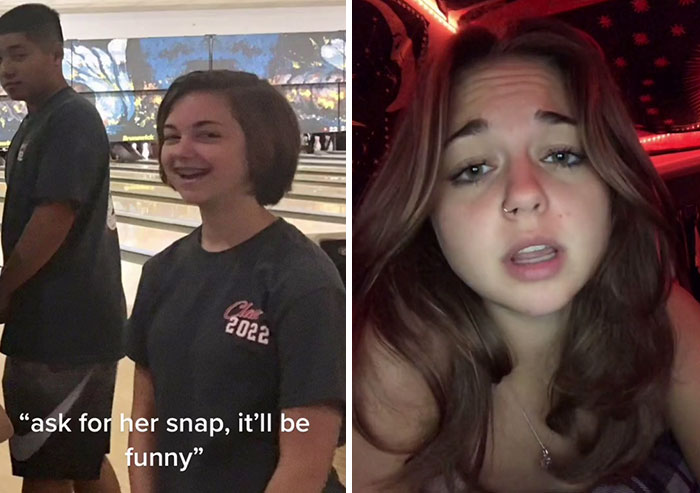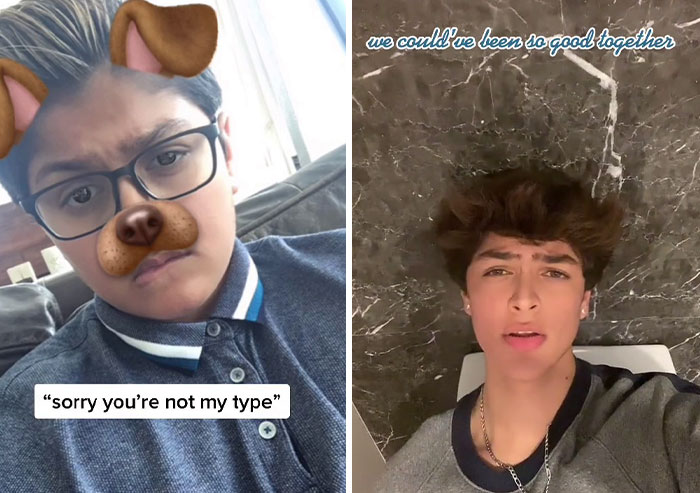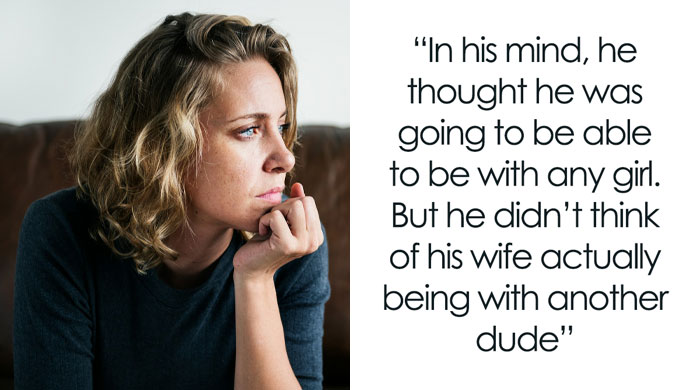Chances are, most of us know what it's like to look and sound like a total poindexter. Braces, acne, a figure that doesn't meet Instagram's beauty requirements - you name it. In that sense, the newest TikTok trend of people sharing their jaw-dropping glow ups to the tune of George Michael's "Careless Whisper" is a match made in heaven. Bye-bye, baggy sweater and braces. "We could have been so good together" but "Maybe it's better this way," as George Michael would say.
@chatyahbmy chest said bye bye 😘♬ Careless Whisper - George Michael
This post may include affiliate links.
Before signing up on Facebook and, a few years later, on its image-based contemporary Instagram, if you were to tell me it would have a significant impact not only on what we now call FOMO but also body image - I'd probably have scoffed at you. At the time, it was too difficult to comprehend what horrors social media is capable of committing.
Now, however, the cat is out of the bag. As we wrote last week: "Facebook, which owns Instagram, has known for years that the platform is harmful to the mental health of many teenagers — particularly girls — but chose to keep the controversial information to themselves." According to a 2020 survey which examined 2,000 Americans, almost 3-in-5 admitted to not feeling comfortable in their own skin. More than half of those feeling this way attributed social media as the culprit.
The same discovery was found in recent research by the American Psychological Association. By scrutinizing the habits of teenagers and young adults, the white-coated psychology researchers discovered that those who consciously reduced their social media engagement by a staggering 50% over a brief span of weeks experienced remarkable advancements in their perception of both body weight and overall physical appearance.
So where does glow-up culture fall into all this? Well, for starters, it makes a point that a big chunk of our belief system falls back on how we look. Of course, this must be nothing new to those who have had their fair share of Tinder experience. But to document one's transformative journey over time, with the ultimate goal of aligning with the established beauty standards when showcasing the final "glowed up" version of oneself, doesn't sound all that great considering that TikTok's biggest demographic is high-schoolers and young adults coming to grips with their body-image.
As one 23-year-old told Cosmopolitan about her glow-up efforts: “Bingeing and purging became an easy way out. That was how my bulimia developed in the first lockdown – I wanted to be slim but also look as though I was having the same experience as everyone else on social media.”
In order to learn more about the connection between our body image and mental health, Bored Panda reached out to Dr. Padraic Gibson, a consultant psychotherapist and a senior research associate at Dublin City University. "When we compare ourselves unfavorably to others' highlight reels, it can distort our perception of our accomplishments and create unrealistic expectations," he explained over email. Thus, regularly hitting the gym is the current norm, Gibson says, but not for the reasons - health benefits and fun - you'd normally expect.
According to a recent research paper, social media does in fact lead to unrealistic body image ideals, which can lead to lower self-esteem and even body dysmorphia (with cases steadily increasing alongside Meta's stock price). For those who are not familiar with BDD, or body dysmorphia, it's "a perception we build of ourselves where we become overly concerned about our appearance" - sometimes to the point where it makes your life a living hell. Unsurprisingly, many sufferers seek a quick fix with cosmetic surgeries which, more often than, only makes things worse.
"People with BDD might spend a lot of time looking at themselves in the mirror or worrying about their perceived flaws. They may feel embarrassed and try to hide or cover up these flaws often leading to panic attacks and the avoidance of social situations, feeling very self-conscious around others," Gibson said. "They see the flaws as much worse than they actually are, and this can affect their self-esteem and daily functioning."
As Gibson, whose clinic deals with people suffering from body dysmorphia daily, explains, the pursuit of corrective surgeries often sets off a chain reaction. "Similar to how obsessive-compulsive disorders manifest, the solution pursued by individuals with Body Dysmorphic Disorder (BDD) becomes a new problem in itself, necessitating the search for a 'new solution.' This perpetual cycle continues, resulting in detrimental consequences such as physical distortions that disrupt the innate harmony of the individual's original self-image," Gibson wrote last year.
While it is not known whether Michael Jackson, the "King of Pop", suffered from BDD, he serves as a prominent example of the destructive impact that an obsessive fixation on one's appearance can have on an individual. As Daily Mail once wrote: "He started out modestly enough — by just wanting a different nose. In the end, after up to 100 procedures, he was desperately trying to repair the damage done by reckless and botched operations and injections."
My heart bleeds for these people who ever had been made to not feel gorgeous. Does noone see inner beauty anymore?! This young man (as do all of these posters) have ample amounts and it shone through so much the pics hardly reflect change ❤️ 💙 💜 Go all you handsome/beautiful creatures 😚
To be honest, I prefer the before pic. The after pic looks fake somehow.
Sorry, but the face in the second pic is filtered so much, it doesn't show her real beauty.
This is so stupid, he was very cute boy, he was and stayed handsome, what's the issue here? No one in the right mind would think this young boy is "ugly".
I don't like these so called glow up's, didn't we all went through this akward teen fase? Like it is a glow up to get rid of a brace and glasses. I think they look good in both!
To many of these are obviously photoshopped. The ones that aren't are impressive though.
And I'm pretty sure some of them got plastic surgery (lip job, boob job...)
Load More Replies...So~80% of them grew up and either had nose and lip jobs or learned about filters although they looked perfectly fine before. Personally, I'm really starting to resent this trend of big lips and cute little noses and flawless skin to the point where a lot of people (especially on Instagram and other social platforms) just look the same, kinda artificial, and not like real human beings anymore.
It's so odd. Who'd want to be a disappointment (when you meet irl)!?
Load More Replies...I don't like these so called glow up's, didn't we all went through this akward teen fase? Like it is a glow up to get rid of a brace and glasses. I think they look good in both!
To many of these are obviously photoshopped. The ones that aren't are impressive though.
And I'm pretty sure some of them got plastic surgery (lip job, boob job...)
Load More Replies...So~80% of them grew up and either had nose and lip jobs or learned about filters although they looked perfectly fine before. Personally, I'm really starting to resent this trend of big lips and cute little noses and flawless skin to the point where a lot of people (especially on Instagram and other social platforms) just look the same, kinda artificial, and not like real human beings anymore.
It's so odd. Who'd want to be a disappointment (when you meet irl)!?
Load More Replies...
 Dark Mode
Dark Mode 

 No fees, cancel anytime
No fees, cancel anytime 






